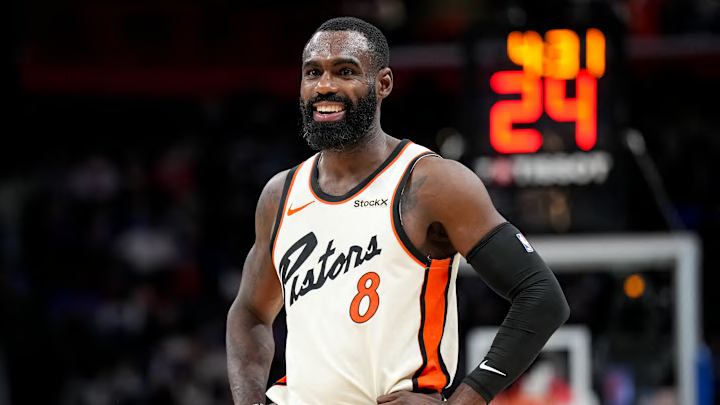In an era defined by analytics and efficiency, Tim Hardaway Jr. has a chance to elevate the Denver Nuggets by disregarding those priorities. That can only be ideally executed within reason, of course, but Denver has long struggled to find a bench scorer who can alleviate pressure from the starters.
Hardaway is one of several key additions to a revamped second unit, but his specific skill set has given the Nuggets a long-awaited opportunity to finally fill a critical void.
Hardaway, 33, has spent the past 12 seasons toeing the thin line between inefficiency and explosivity. He's a career 36.1 percent shooter from beyond the arc, with peaks as high as 39.8 percent in 2019-20 and valleys as low as 31.8 percent in 2017-18.
Hardaway has buried at least 35.3 percent of his three-point field goals in five of the past six seasons, however, thrice shooting 38.5 percent or better.
Hardaway has started 360 of his 532 appearances since 2017-18, but a move to a bench role in 2025-26 may be the most ideal outcome. He'll be backing up the likes of Christian Braun and Cameron Johnson, as well as providing scoring relief to Nikola Jokic and Jamal Murray.
Whenever Hardaway is on the court, the Nuggets will need two simple things from him: Efficient catch-and-shoot conversions and the willingness to take difficult shots when no one else will.
Tim Hardaway Jr. can help Nuggets' bench finally generate offense
Denver brought in several capable offensive players to help restructure the second unit, including Bruce Brown Jr. and Jonas Valanciunas. Both players will be tasked with providing dependable scoring and playmaking value alongside the likes of DaRon Holmes II, Julian Strawther, and Peyton Watson.
What Hardaway offers is different from the other reserves, however, as a volume scorer with the capacity for relatively efficient catch-and-shoot contributions.
Hardaway boasts a career average of 18.0 points per 36 minutes, which epitomizes his ability to keep constant pressure on opposing defenses. He's admittedly subject to cold streaks and questionable displays of shot selection, but given the way Denver's roster is structured, that's not necessarily a deterrant.
Denver's bench ranked No. 27 in scoring in 2024-25, as well as dead last in three-point field goals made—and Hardaway offers an opportunity to improve in both areas.
With Hardaway fearlessly approaching scoring as an essential skill, the Nuggets' second unit can develop an early identity. Valanciunas is a top-tier post scorer, Brown offers a bit of everything, and Hardaway is the late-in-the-shot-clock player who won't back down from the need to get a shot up.
It may not be the most efficiency-friendly ability, but it can't be ignored that the Nuggets' next leading scorer after their top six players during the 2025 NBA Playoffs averaged just 4.5 points per game.
For perspective: The Oklahoma City Thunder had nine players who averaged at least 5.1 points per game. The fact that the Nuggets couldn't even generate that output from a seventh is a statistical example of the issue that derailed their championship dreams.
When neither the starting lineup nor sixth man Russell Westbrook could consistently generate offense, Denver was effectively lost at sea on the offensive end of the floor.
Thankfully, Hardaway provides on and off-ball value. That much was proven when he shot 37.2 percent on catch-and-shoot threes in 2024-25. That may not be an elite figure, but it's a sign that he's capable of playing alongside high-level playmakers and providing value as an off-ball scoring threat.
Denver will rely heavily on Brown's championship experience and Valanciunas' double-double wizardry, but Hardaway's fearless scoring will prove equally as essential in 2025-26.
